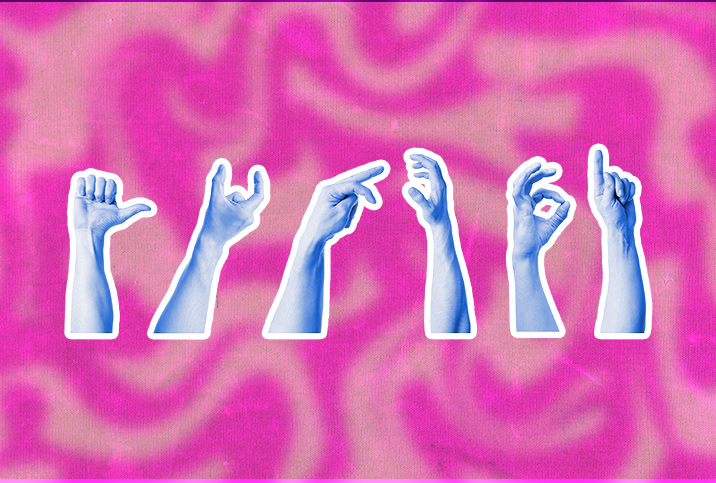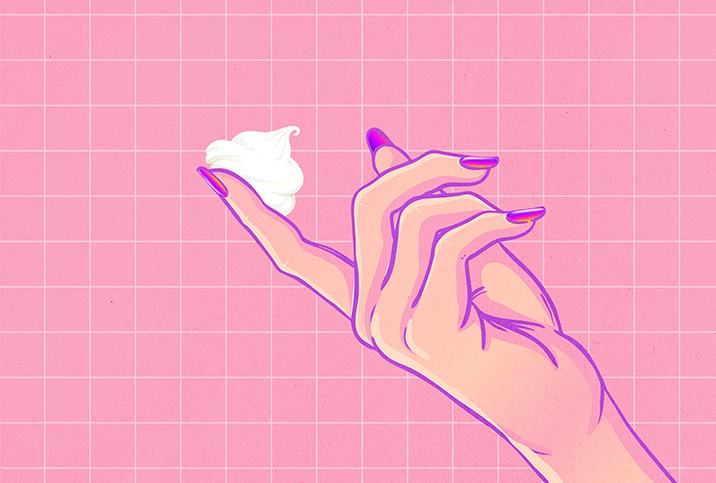Though it's increasingly becoming more openly talked about, masturbation has long been considered taboo. The truth is it's normal for a person to sexually explore their own body. In fact, the pleasure from masturbation is often accompanied by other physical and mental health benefits.
The Facts About Masturbation
Find out how masturbation affects your sexual health.

What is masturbation?
Masturbation is most often characterized as the self-stimulation of the genitals for sexual pleasure and arousal. There are many different ways to masturbate. Fingers, hands and sex toys are but a few of the many potential options used for masturbation. Masturbation can include touching, rubbing, pressing, stroking or massaging the genitals, the anus or other erogenous zones of the body.
Some people find that incorporating lubricant helps reduce friction and makes the experience more pleasurable. In some cases, an individual may think about sexual fantasies or look at sexually explicit content during masturbation, or they may do neither. The process of masturbation is often independent. There's no right or wrong way to go about it—or you can not do it at all.
Societal norms and pop culture
Though society has made considerable strides in talking more openly about sexual health and intimacy, for many people, masturbation remains a taboo subject. It's not uncommon for people to feel guilty or ashamed after masturbating, which is typically due to religious beliefs or cultural stigma.
The stigma around masturbation is often much stronger for girls and women. These cultural forces have bled into popular television and movies as well. It isn't uncommon for men to be depicted (or suggested to be) masturbating, but it's much more difficult to find as many scenes that include a woman masturbating.
Ultimately, it's important to know there is nothing abnormal about masturbating, as it's an important component of sexual development. Aside from the physical and mental health benefits of masturbation, exploring your own body and figuring out what feels pleasurable to you can provide knowledge and experience that can allow for more open communication about sexual preferences and potential intimate activities in the future.
Masturbation demographics
It's difficult to pin down exact statistics about who does and doesn't masturbate because most information we have is self-reported. But based on the data gathered through various surveys, experts believe most people masturbate at some point during their lifetime.
Japanese sex brand Tenga found in its 2020 Self-Pleasure Report, which was based on the responses of more than 5,000 people surveyed across five countries, that about 84 percent of Americans masturbate. More than half of these folks also said they pleasure themselves on a weekly basis. Additionally, both single individuals and individuals in committed relationships reported that they masturbate. However, a majority of these respondents were single.
The University of Michigan's C.S. Mott Children's Hospital reported that the majority of young boys and girls begin to touch their genitalia with some regularity around age 5 or 6. Almost 25 percent of girls and 100 percent of boys masturbate to the point of orgasm by the age of 15. It's important to note this development is considered normal sexual development and children don't generally associate masturbation with sex until puberty.
Masturbation frequencies
There is no "normal" frequency for masturbation. Depending on the person, someone might masturbate on a daily, weekly, monthly or even yearly basis; some people may not masturbate at all.
An Indiana University study indicated men ages 25 to 29 reported they masturbated anywhere between a few times per month to a few times per week. More recently, the 2021 Tenga Self-Pleasure Report indicated that about half of the American survey respondents said they had a weekly self-care routine. Of those respondents, 60 percent of men and 40 percent of women said their routine included masturbation.
Are there risks?
Despite the misinformation you may have heard about the risks of masturbation—such as causing blindness or hair loss—the fact is it's totally safe.
Self-pleasure doesn't carry the risk of sexually transmitted infections (STIs) or pregnancy. In rare cases, a penile fracture can occur as a result of masturbation with excessive force. Another rare condition, unofficially known as "death grip syndrome," can occur as a result of a combination of factors, such as a "too-tight" grip and low testosterone levels.
The primary—and most common—complication of frequent masturbation is skin irritation. If you find yourself masturbating often, the frequent friction may cause some discomfort on the skin of the penis or vagina. Using lubricant can help relieve this problem.
Myths and misconceptions
The myths and misconceptions surrounding masturbation are plentiful. Most are rooted in historical inaccuracies, cultural and religious stigma, and plain misinformation.
Rest assured, despite popular myths, masturbation does not cause:
- Blindness
- Deafness
- Erectile dysfunction (ED)
- Hair loss or excessive hair growth in places you don't want hair
- Infertility
- Low sperm count
- Penis curvature
- Penis shrinkage
Physical health effects
Self-pleasure isn't the only benefit of masturbation. Orgasming during masturbation releases endorphins in the brain that can act as natural pain relievers, which can alleviate mild pain caused by period cramps, headaches, and other minor aches and pains.
Since masturbation requires physical activity and muscle exertion, the act theoretically could serve as a low-intensity cardio workout and may help your pelvic floor get stronger.
Hormones
When an individual masturbates to the point of orgasm, the brain releases "feel-good" hormones called dopamine and oxytocin.
Dopamine and oxytocin have been known to increase feelings of positive emotions, particularly happiness. Together, these hormones may help reduce the effects of cortisol, the stress hormone. A good night's sleep is an added bonus of this masturbation-induced hormone cocktail.
Mental health
In addition to the physical benefits of rest and relaxation, self-pleasure can also bring mental health benefits.
Taking the time to explore your own body can lead to improved confidence, sexually and otherwise. Setting aside time to be intimate with yourself is viewed by many as an act of self-care and can become an important and relaxing part of a self-care routine.
Masturbating with your partner
Just as there's more than one way to have sex, there are many different ways to masturbate, including inviting a partner to join you. Mutual masturbation can be a great way to spice up your sex life and help rid yourself of feelings of shame and guilt about masturbation.
You may also find watching your partner masturbate is a useful way to discover how best to pleasure them and vice versa. Consider adding some sexy instructions—such as describing to your partner how you would like them to touch themselves—to spice things up even more.
Masturbation and sexual dysfunction
It's a common misconception that masturbation, especially frequent masturbation, can lead to sexual dysfunction in both men and women. Actually, the opposite is true, and masturbation can actually improve sexual health.
If you masturbate to completion shortly before engaging in sexual activity with your partner, you may be left feeling like you need more time before you're ready for another orgasm. But many men find pleasuring themselves on a regular basis helps improve their stamina in bed, while women benefit from the knowledge of self-exploration for what works best for them in bed.
Though rare, "death grip syndrome" may develop in men who consistently use an overly firm and intense grip during masturbation. This habit can lead to desensitization that makes it hard to orgasm any other way.
Does masturbation cause ED?
Masturbation does not cause erectile dysfunction. In fact, masturbation has been directly linked to sexual health in a variety of ways, including developing sexual confidence, improving stamina in bed and increasing sex drive.
If you're experiencing symptoms of ED, consult your doctor.
Menopause and masturbation
Menopause brings a host of changes, from no more periods, cramps or bloating to new issues such as changes to the vagina and fluctuations in libido. Women going through menopause can experience vaginal dryness, which can lead to pain and discomfort during sexual activity. Sex drive also may decline with age.
Researchers have found masturbation frequency increases during the early transition phase of menopause and then declines in postmenopause. However, that doesn't mean menopause is the end of a woman's sex life—with herself or others.
If you struggle with vaginal dryness, your doctor may prescribe treatment in the form of creams, pills or estrogen rings. These remedies, combined with some lubricant, can make masturbation comfortable and enjoyable.
A happy ending
Masturbation is a normal part of sexual development and a harmless act of self-intimacy that can provide several different physical and mental health benefits. Despite the cultural stigma, historical misinformation and popular misconceptions, masturbation is a safe and natural activity. Ultimately, it's each individual's personal choice if they want to masturbate.
FAQs
What happens if you don't ejaculate for a long time?
Intentionally going long periods of time without ejaculating, known as semen retention, is claimed by some people to provide the benefits of increased libido, better concentration, and higher testosterone and energy levels. However, the scientific evidence to confirm these potential benefits is scant.
Does masturbation cause polycystic ovary syndrome (PCOS)?
Masturbation does not cause PCOS. In fact, masturbation is a safe activity with few health risks.
Is feeling sick after masturbation normal?
Though it's rare, it's possible to experience flu-like symptoms following orgasm, whether it was achieved by way of partner sex or masturbation. These symptoms are caused by a rare condition called postorgasmic illness syndrome (POIS) and can last minutes, hours or several days after their onset.












